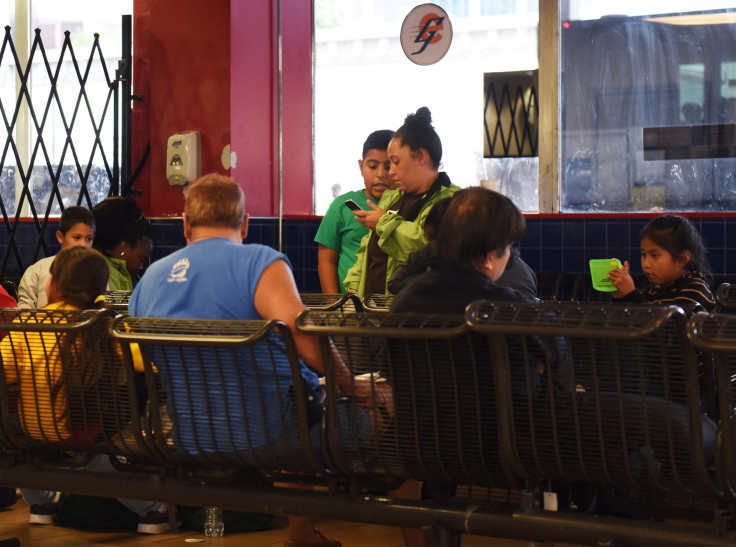Trump's New Immigration Law: What You Need To Know

The Trump Administration on Monday announced a new sweeping rule that would give the government greater power to reject green card and permanent residency to immigrants who are dependent on government aid.
The 837 page rule, published in the Federal Register, will be released officially on Wednesday and would be in effect from Oct. 15. The rule was announced at the White House on Monday morning by Ken Cuccinelli, the acting director of the U.S. Citizenship and Immigration Services.
Coupled with the recent enforcement raids in Mississippi, the new rule points to Trump administration’s efforts to curb immigration, both legal and illegal.
Derived from the Immigration Act of 1882, the new rule states that legal immigrants can now be denied a green card if they are dependent on government aid like Medicaid, Housing Vouchers, the Supplemental Nutrition Assistance Program and other assistance.
If an immigrant receives these benefits for more than 12 months in any 36-month or three-year period, then it could prove detrimental in his/her effort to gain permanent residency. The rule essentially defines the term “public charge”.
According to Cuccinelli, the new rule would encourage “self-reliance and self-sufficiency for those seeking to come to or stay in the United States”
“Through faithful execution of our nation’s laws, we will better ensure that immigrants are able to successfully support themselves as they seek opportunity here.” Listen as @USCISCuccinelli discusses the public charge final rule: pic.twitter.com/UJ9E9HazcT
— USCIS (@USCIS) August 12, 2019
A term first appearing in the U.S Immigration Law of 1882, a person deemed to be a "public charge" would be deported and barred from the country. Public charge essentially means a burden to society.
According to the new law, a green card applicant would have to prove to the immigration authorities that he would not be a burden on the American economy. Immigrants who ball below certain income levels too would fate the heat of being branded a “public charge”.
The new rule would pose a serious hindrance to people coming from low income backgrounds and low income nations. The new rule would also force people to forego health care and food aid for their children and families. According to critics, the rule would also impact hard working immigrants who depend on some government support and aid.
Military members, asylum seekers and refugees would be exempted from the new public charge rule. Also, receiving benefits like school lunch program, homeless shelters and food pantries won’t negatively affect the applicants.
Undocumented immigrants too won’t be affected as they are not eligible for public aid.
The National Immigration Law Center said it would be filing a lawsuit against the rule as it was racially motivated. Several immigration advocates have warned of “chilling effect” on people who are not permanent citizens and people seeking immigrate to the country from abroad. Observers also predict a "spillover" effect, wherein U.S citizens too will be affected by the outcome of the law.
Democratic presidential candidate Beto O’Rourke too slammed the new rule with a tweet. Critics say that this move would essentially cut off the vital public benefits available to immigrants in the country, leading to grave problems including health issues.
Legal. Undocumented. Refugee. Asylum Seeker. The distinctions don't matter to President Trump. If you're an immigrant, he believes you have no place in this country—even though, for 243 years, immigrants have made America the greatest nation the world has ever known. https://t.co/k3eiud9vT2
— Beto O'Rourke (@BetoORourke) August 12, 2019
© Copyright IBTimes 2025. All rights reserved.





















